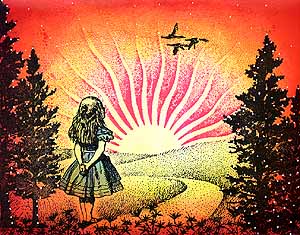
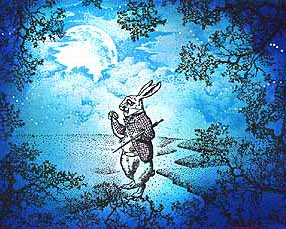
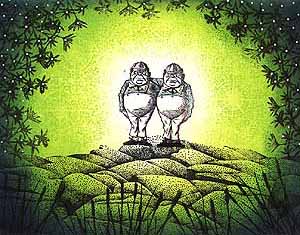
|
Page One |



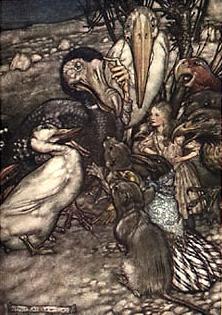
|
'Twas
brillig, and the slithy toves
"Beware
the Jabberwock, my son!
He
took his vorpal sword in hand:
And,
as in uffish thought he stood,
One,
two! One, two! And through and through
"And
hast thou slain the Jabberwock?
'Twas
brillig, and the slithy toves
|
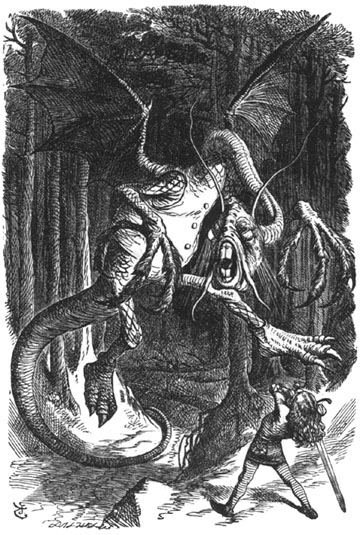
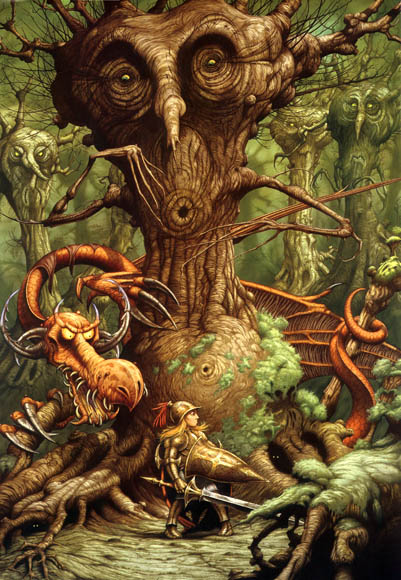
|
The sun was shining on the
sea,
The moon was shining sulkily,
The sea was wet as wet could
be,
The Walrus and the Carpenter
"If seven maids with seven
mops
"O Oysters, come and walk
with us!"
The eldest Oyster looked at
him,
But four young Oysters hurried
up,
Four other Oysters followed
them,
The Walrus and the Carpenter
"The time has come," the Walrus
said,
"But wait a bit," the Oysters
cried,
"A loaf of bread," the Walrus
said,
"But not on us!" the Oysters
cried,
"It was so kind of you to
come!
"It seems a shame," the Walrus
said,
"I weep for you," the Walrus
said:
"O Oysters," said the Carpenter,
|
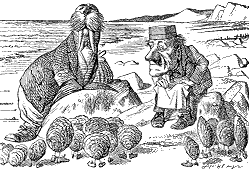
|
Hush-a-by lady, in Alice's
lap!
To the Looking-Glass world
it was Alice that said
`Then
fill up the glasses as quick as you can,
`"O
Looking-Glass creatures," quoth Alice, "draw near!
`Then
fill up the glasses with treacle and ink,
|
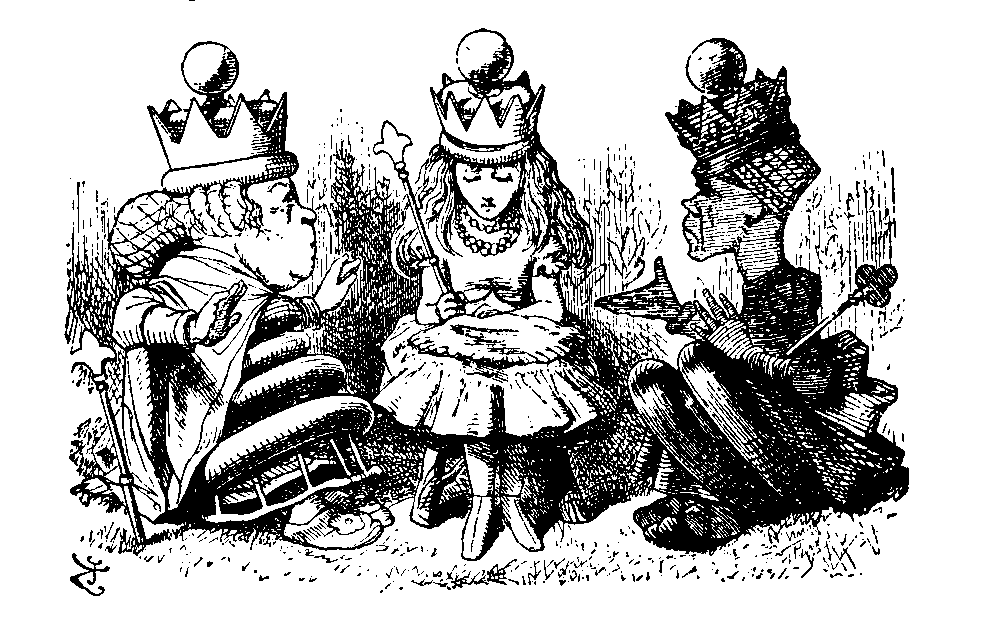
|
"First, the fish must be caught."
"Now cook me the fish!"
"Bring it here! Let me sup!"
For it holds it like glue--
|
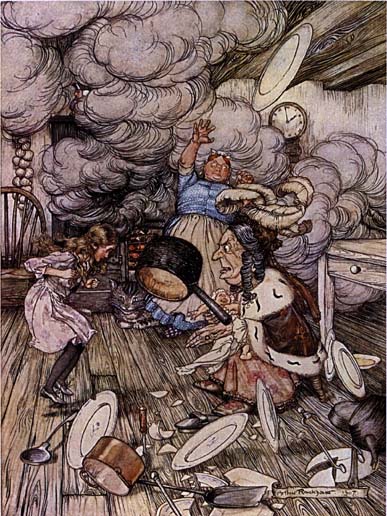
|
`Will you walk a little faster?'
said a whiting to a snail,
`You
can really have no notion how delightful it will be,
`What
matters it how far we go?' his scaly friend replied.
|
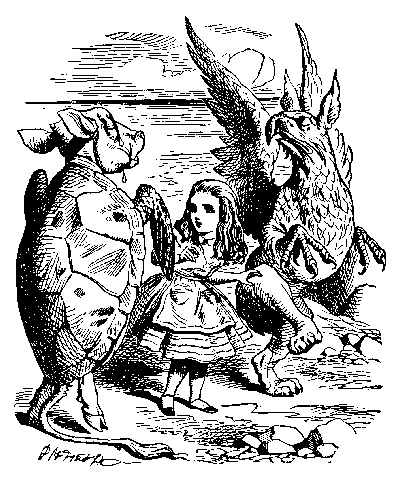
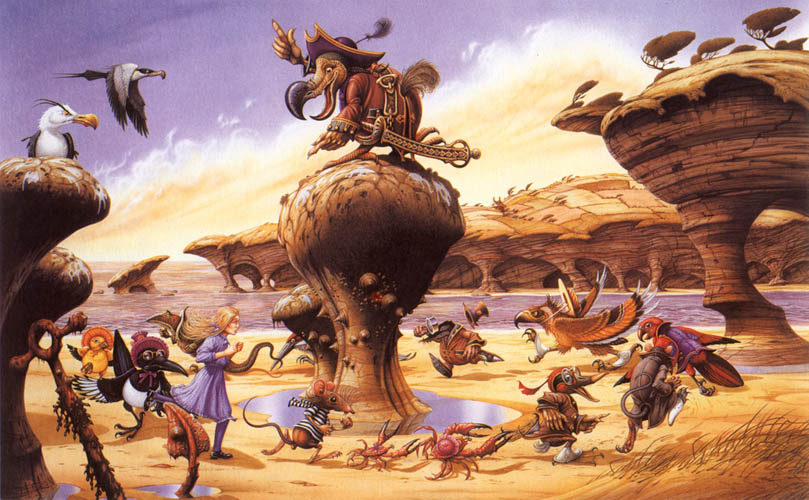
|
THE MOCK TURTLE'S SONG `Beautiful Soup, so rich and
green,
Soo--oop
of the e--e--evening,
|
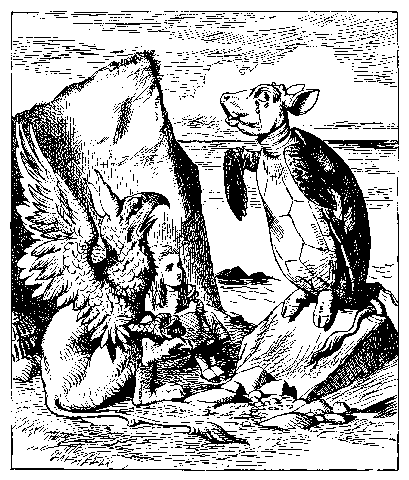
|
`They told me you had been
to her,
He
sent them word I had not gone
I gave her one, they
gave him two,
If I or she should chance
to be
My notion was that you had
been
Don't
let him know she liked them best,
|
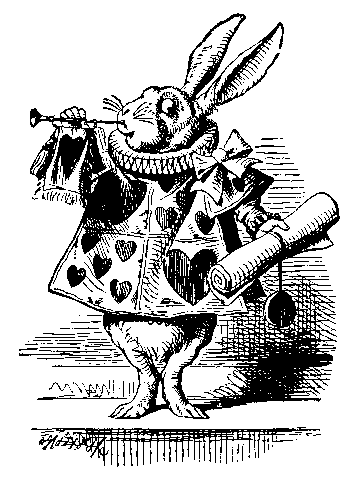
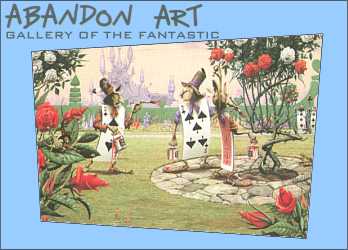
This image was created by Rodney
Matthews.
It is copyright©
and may not be reproduced without permission.
|
In
winter, when the fields are white,
In
spring, when woods are getting green,
In
summer, when the days are long,
In
autumn, when the leaves are brown,
I
sent a message to the fish:
The
little fishes of the sea,
The
little fishes' answer was
I
sent to them again to say
The
fishes answered, with a grin,
I
told them once, I told them twice:
I
took a kettle large and new,
My
heart went hop, my heart went thump:
Then
some one came to me and said
I
said to him, I said it plain,
I
said it very loud and clear:
`But
he was very stiff and proud:
And
he was very proud and stiff:
I
took a corkscrew from the shelf:
And
when I found the door was locked,
And
when I found the door was shut,
|
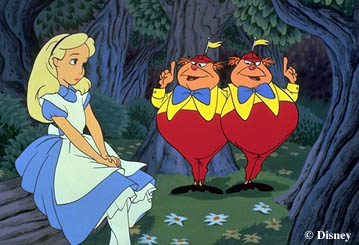
|
ALICE'S ADVENTURES IN WONDERLAND All in the golden afternoon
Ah,
cruel Three! In such an hour,
Imperious
Prima flashes forth
Anon,
to sudden silence won,
And
ever, as the story drained
Thus
grew the tale of Wonderland:
Alice!
A childish story take,
|
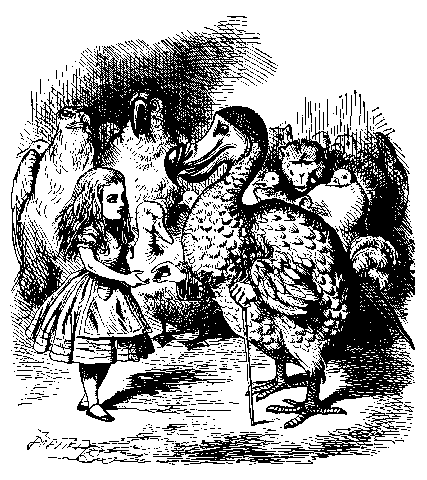
|
from a Fairy to a Child Lady dear, if Fairies may
We
have heard the children say--
Still,
as Christmas-tide comes round,
Yet
the hearts must child-like be
Thus,
forgetting tricks and play
|
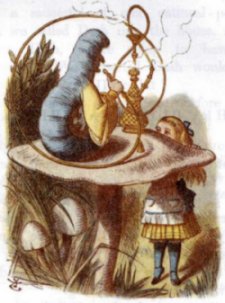
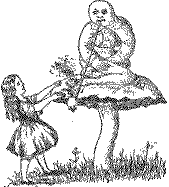
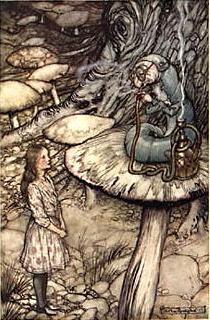
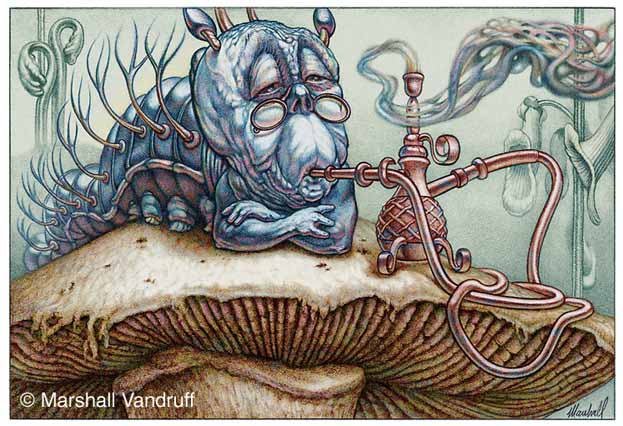
This image was created by Marshall
Vandruff. It is copyright©
and may not be reproduced
without permission. For more info,
click above or at his other web site
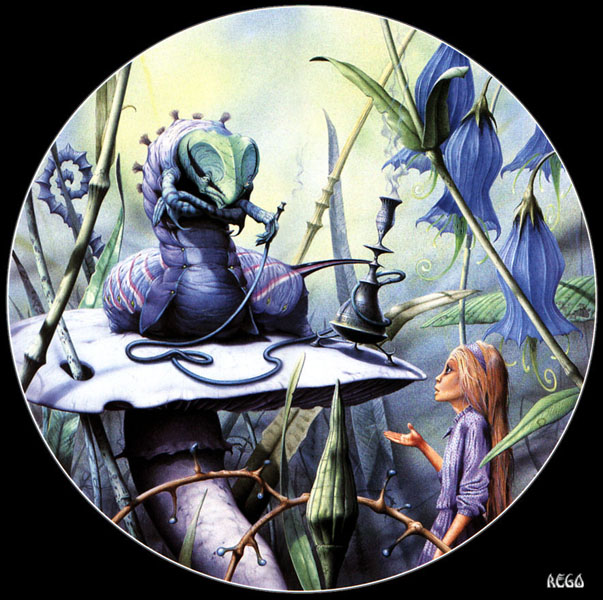
This image was created by Rodney
Matthews.
It is copyright©
and may not be reproduced without permission.
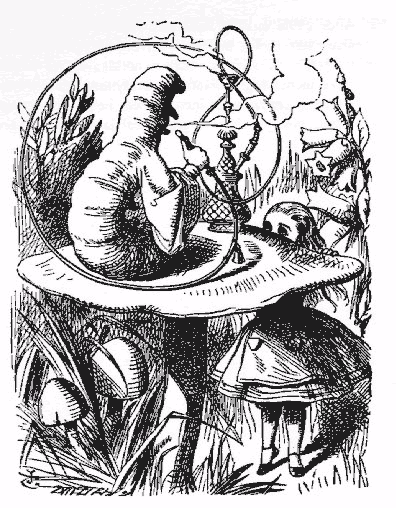
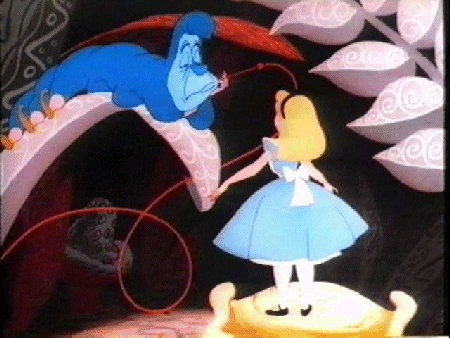
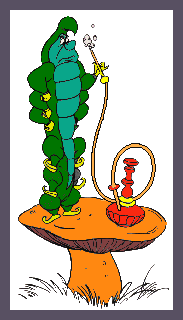
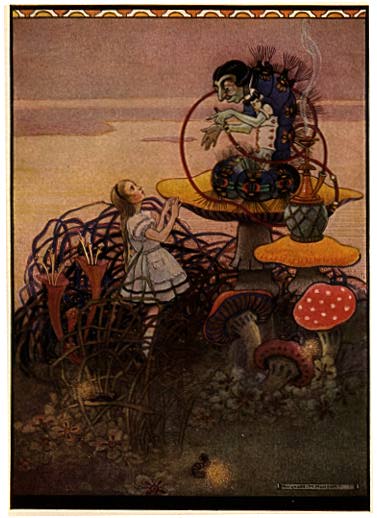
|
THROUGH THE LOOKING GLASS Child of the pure unclouded
brow
I
have not seen thy sunny face,
A
tale begun in other days,
Come,
hearken then, ere voice of dread,
Without,
the frost, the blinding snow,
And,
though the shadow of a sigh
|
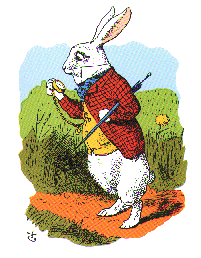
|
THROUGH THE LOOKING GLASS A boat, beneath a sunny sky
Children
three that nestle near,
Long
has paled that sunny sky:
Still
she haunts me, phantomwise,
Children
yet, the tale to hear,
In
a Wonderland they lie,
Ever
drifting down the stream --
|
This image was created by Marshall
Vandruff. It is copyright© and
may not be reproduced
without permission. For more info,
click above or at his other web site
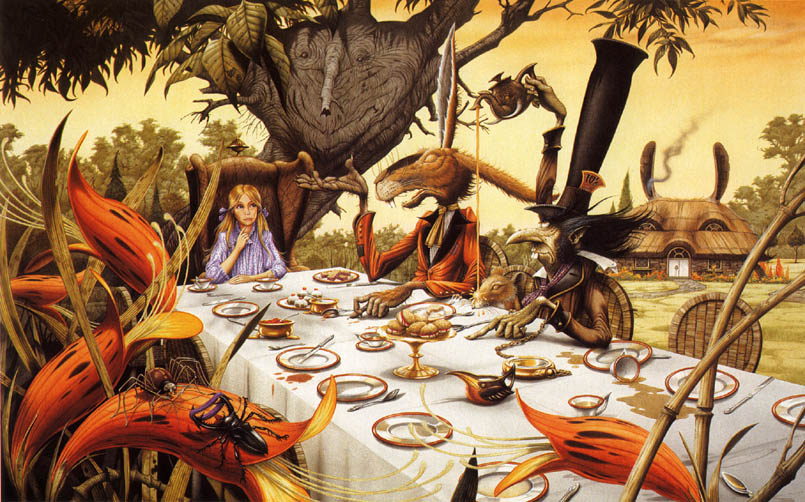
This image was created by Rodney
Matthews.
It is copyright©
and may not be reproduced without permission.
|
"Just the place for a Snark!"
the Bellman cried,
"Just the place for a Snark!
I have said it twice:
… "Friends, Romans, and countrymen,
lend me your ears!"
"We have sailed many months,
we have sailed many weeks,
"We have sailed many weeks,
we have sailed many days,
"Come, listen, my men, while
I tell you again
"Let us take them in order.
The first is the taste,
"Its habit of getting up late
you'll agree
"The third is its slowness
in taking a jest.
"The fourth is its fondness
for bathing-machines,
"The fifth is ambition. It
next will be right
"For, although common Snarks
do no manner of harm,
"Friends, Romans, and countrymen,
lend me your ears!"
"We have sailed many months,
we have sailed many weeks,
"We have sailed many weeks,
we have sailed many days,
"Come, listen, my men, while
I tell you again
"Let us take them in order.
The first is the taste,
"Its habit of getting up late
you'll agree
"The third is its slowness
in taking a jest.
"The fourth is its fondness
for bathing-machines,
"The fifth is ambition. It
next will be right
"For, although common Snarks
do no manner of harm,
The sought it with thimbles,
they sought it with care;
"Its flavour when cooked is
more exquisite far
"You boil it in sawdust: you
salt it in glue:
… It's a Snark!" was the sound
that first came to their ears,
Then, silence. Some fancied
they heard in the air
They hunted till darkness
came on, but they found
In the midst of the word he
was trying to say
|
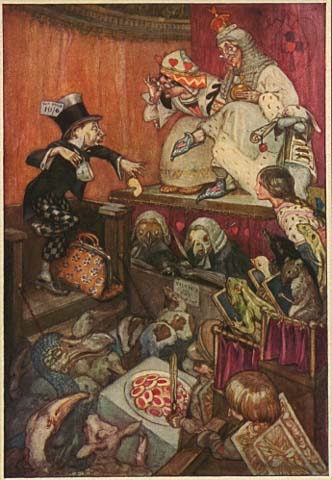
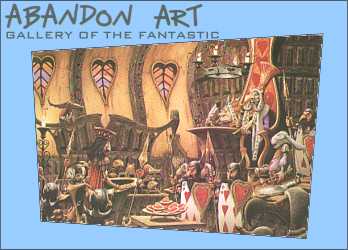
|
|
 |
|
John Tenniel, Lewis Carroll, Arthur Rackham, A.E. Jackson, Gwynedd Hudson (public domain) Walt Disney Studios, Alice In Rubberland, Leavenworth Jackson, Marshall Vandruff, and Rodney Matthews Copyright© and not to be reproduced without permission of artist |